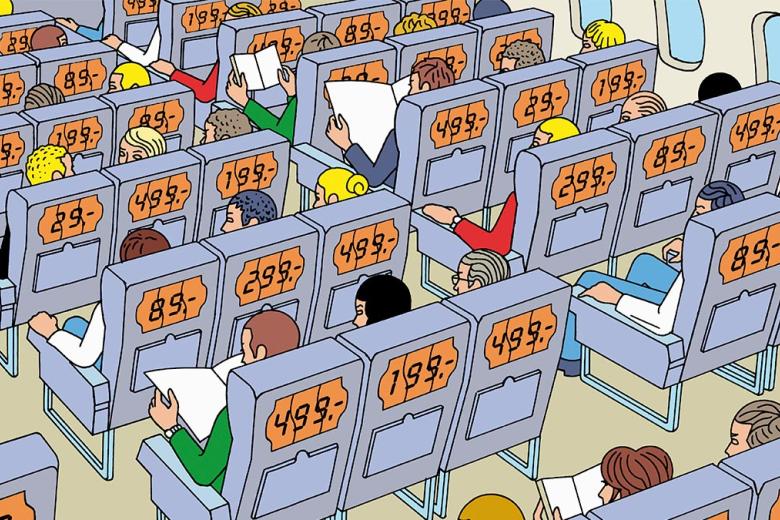Digitalization and property: how to prevent a dystopia?
As we all can experience in our daily basis, we are living through the age of digitalization. Goods that were formerly tangible (as paperback books) or that at least had a tangible medium (as cartridge-based videogames), are now available in full-digital versions. Moreover, many physical goods are now “smart” (even smarter than us), incorporating software that allows them to exchange data with communication networks (as self-driving cars).
Main points:
- Does digitalization challenges our notion of property?
- How do “hard” digital rights management systems impact the quality of digital goods?
- Should competition law be engaged in the assessment of “digital quality”?
There is no doubt that digitalization brings enormous benefits for users in terms of storage, environment protection and complexity. However, it can also bring certain drawbacks, which are mainly referred to the restrictions imposed to user’s control over the good, restrictions that did not exist in their former tangible versions.
To illustrate this idea, just imagine the following ominous market scene. Suppose your favorite author has published a new book and that the company ‘‘Big Publisher’’ is offering a paperback version of it, for only €15. It seems a good price and you are willing to pay for it. However, just before making the payment, the salesman warns you that the content of the book is encrypted, so that you can only read it if you wear special glasses that decode the text, which are sold only by ‘‘Big Publisher’’, for €10. You are not happy about this condition, but since you do not want to miss what could be a new masterpiece you are willing to pay for the glasses as well. Yet, the salesman issues a second warning. He informs you that the book is not being sold to you, but just “licensed indefinitely”. Pursuant to this license you will need to comply with a set of requirements to successfully use the book: (i) you can use the glasses only after a biometric user authentication procedure; (ii) you cannot read the book in another country (because the glasses will not work abroad); (iii) you can neither lend the book to a friend nor resell it (since other people’s glasses will not work with your book); (iv) you can only highlight your favorite passages if you purchase a special marker that is only sold by - surprise- ‘‘Big Publisher’’; and (v) you cannot use your glasses to read encoded books of Big Publisher’s competitors.
Is this the script of a new episode of the near-future dystopia British television series, Black Mirror? No, it is just the script of the present market for some e-books, videogames, movies and other similar digital goods offered under a product-based business model. As a matter of fact, all the restrictions mentioned in the example are actual and potential operations of what are called ‘‘digital rights management’’ (DRM) systems or, in the wording of some EU legislative acts, ‘‘technological measures”. In simple words, DRM systems are computer codes that can be used to -technologically- regulate both access and use of digital goods.
The adoption of DRM systems by tech companies challenges the applicability of several areas of law that were mainly developed before digitalization, as consumer protection, intellectual property, and competition law. It also challenges the very concept of property and its applicability to digital goods. In the book “The End of Ownership” (2018), Perzanowski and Schultz warn that property rights are being eroded in the digital marketplace, meaning that “rights to use, to control, to keep, and to transfer purchases –physical and digital– are being plucked from the bundle of rights that purchasers have historically enjoyed and given instead to IP rights holders’’ (p. 23).
I suggest that competition law is equipped to address at least some of the restrictions imposed by DRM systems when these are adopted by dominant undertakings, and not only in terms of exclusionary abuses, but also of exploitative ones. This analysis demands a revision of the exploitative abuse theory by including (digital) quality in the equation, thus determining the “economic value” of a product not only in terms of a measurement of it costs of production (as in United Brands), but also in terms of its (digital) functionality. Indeed, certain DRM systems impact the functionality of digital goods by hindering their ability to perform actions or tasks expected by its buyers, way beyond the legitimate restrictions established by intellectual property law.
| This guest blog was written by Juan Pablo Iglesias for the IGIR and METRO Faculty of Law Maastricht #COMIPinDigiMarkts2022 project - More blogs on Law Blogs Maastricht |
This guest blog is part of the project #COMIPinDigiMarkts2022. These blogs have been specially prepared by participating internal and external project members and focus on competition law and IP law, with particular reference to the digital markets.

-
The digital market competition with multisided markets: a case of Indian e-commerce
Digital platforms are one of the key developments in facilitating industry 4.0 and are at the center of the multifold benefits the consumers derived through this. An important feature of the digital platforms is the presence of high sunk costs and low marginal costs (UNCTAD, 2019). This occurs since...

-
Why AI-enabled price discrimination is not always undesirable: lessons from law and economics
Digitalization has gradually changed business models and reshaped human lifestyles. The rise of business models based on the collection and processing of consumer data allows undertakings to charge business customers and final consumers different prices for the same goods or services, offered at...

-
Google v. Oracle: reimplementing application program interfaces does not infringe copyright
The drafters of EU Computer programmes Directive were aware of the competition law implications of extending protection to the interfaces necessary to enable interoperability of programs and devices. Neither the U.S. Congress nor the CONTU seemed to think of interoperability. So the U.S. Copyright...
